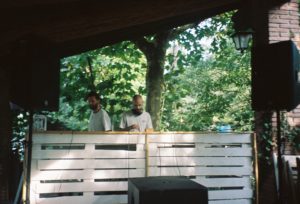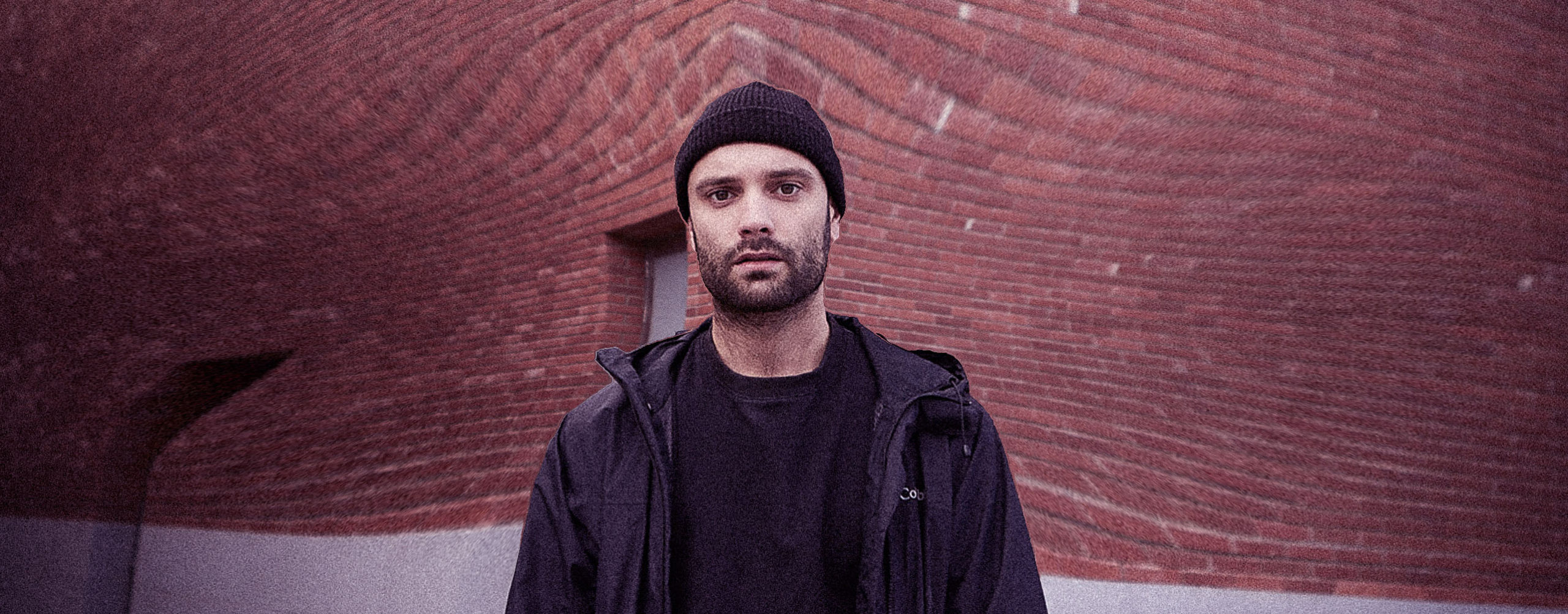Kiku Llobet or also known as DePaula starts his career in the music world in 2018, while residing in one of the key cities in the development of the scene: Hamburg. Inspired by the figure of the DJ and his impact, he embarked on a quest for a unique musical identity within the wider electronic music scene. Convinced that understanding the needs of partygoers is fundamental to creating an outstanding musical experience, DePaula builds his sets by fusing emotion and power into the essence of the club.
Tell us a little about yourself and your first approaches to music.
My name is Kiku, I’m thirty years old and I turned thirty a few months ago. I live in Barcelona, although I was born in a nearby town, I’ve always been living in the city of Barcelona. I know the city very well and during my youth I was looking for what I really liked and made me happy, trying many different things and having fun, but never finding something that made me shine. As life happens I ended up living in Hamburg with my best friend and there we discovered the club culture and electronic music in Germany. It was at that moment when I started to get more interested in this, I learned how to DJ and my interest in everything related to the world of electronic music grew. DJing took a back seat and now I enjoy much more organizing events under my own concept. I think that’s a brief summary of my story.
When did you move to Hamburg?
We were there for about four or five months in 2018.
In a very short time a new world opened up for you with the exposure to electronic music?
Yes, in fact, before living in Hamburg, partying and going out at night had never appealed to me, let alone in Barcelona. When my friends went out, I stayed at home. It was when I turned 26 in Hamburg that I became more interested.

What was it that attracted you to the clubs or electronic culture in Hamburg?
It was one club in particular, it’s called Südpol. The first time I went in there, I was really struck by the atmosphere and the whole show that was organized in the queue. They make sure that you want to be part of a party where no discriminatory behavior is allowed in any direction, creating a healthy atmosphere. I was very fascinated by that. They’re not trying to fill the club and make money, they’re trying to do things right from the beginning, and that struck me, because in Barcelona it’s very hard for something like that to happen.
Do you think there are few places that promote a respectful environment when partying?
I think it’s more focused on a business model, trying to make as much money as possible without considering the cultural aspects of the sector. In Barcelona, there is no such care for the sector, which is very important. It is ironic that those who must follow the laws are the ones who do the worst, while those of us who, according to the law, are “criminals”, focus on taking care of people. That’s what drives me, that’s what motivates me the most in the industry.

How did you start organizing events in Barcelona?
Working in other places, I could see how other people within the sector were doing this, and that made me want to leave my printing press. For example, I met the people from the collective L’A Cultural, which is part of that group that wants to organize more respect-based things here in Catalonia. They are already in their fourth edition while I organize my own event. There may not be many economic benefits, but it’s a success on a cultural level, no doubt.
What are you currently organizing, what projects are coming up?
I have a couple of gigs, I’m going to be DJing in some clubs, but that takes time. Also NIU by L’À Cultural is coming on June 11 at Polvorín, in Montjuïc, in the city of Barcelona and we are also organizing a festival that will take place in October at l’amagatall, the headquarters of the collective. It will be a three-day festival, in the middle of the forest, with downtempo as a genre. We already have several international collaborations coming from different cities in Europe. All these projects are combined with my work in hospitality, but there will come a day when music will be the priority.
Do you see yourself more as an experience producer or a music producer, would you like to combine both roles?
I would like to combine both because when you organize an event you also have the opportunity to play at the venue. Sometimes they come naturally and it becomes a side thing. For example, recently a set I did for a Berlin platform was released.
What inspires you when organizing events?
In the end, it’s a mix of various things I’ve seen in the clubs in Hamburg and Berlin. There is a combination of partying, entertainment, culture and learning. While the music is the most important thing, I like that there are details that allow you to learn from other sectors. It creates a family atmosphere.
How do you get that to be the spirit of these environments?
It’s a mystery to me because I find it extremely difficult to imagine it and make it bigger, to make a living, without breaking with the dynamics that I’m proposing. As it grows, it becomes more difficult to maintain it, but I think it’s possible because there are already many big festivals that achieve it. For my events, it’s an unknown because it’s not a commercial experience. You have to invite people to come to a different event with different music.
How was the organization of the first festival?
It’s a curious story because it all started when I was with some friends organizing my birthday, looking for a place without giving explanations to anyone. That’s when I met the people from L’A Cultural, and suddenly we were organizing Hide & Seek, a much more professional festival, buying tickets for the people who would play and setting capacity limits with the owners of the place where we held it, among other things.
What did you learn from that first organizing experience?
With Hide & Seek I learned a lot of things, but I think the most important thing is learning to delegate. Learning that you can’t do everything by yourself, especially in the beginning when you feel that everything belongs to you. I have learned to treat everyone well and surround myself with a group of people who help me to reduce the pressure and form a good working team.

